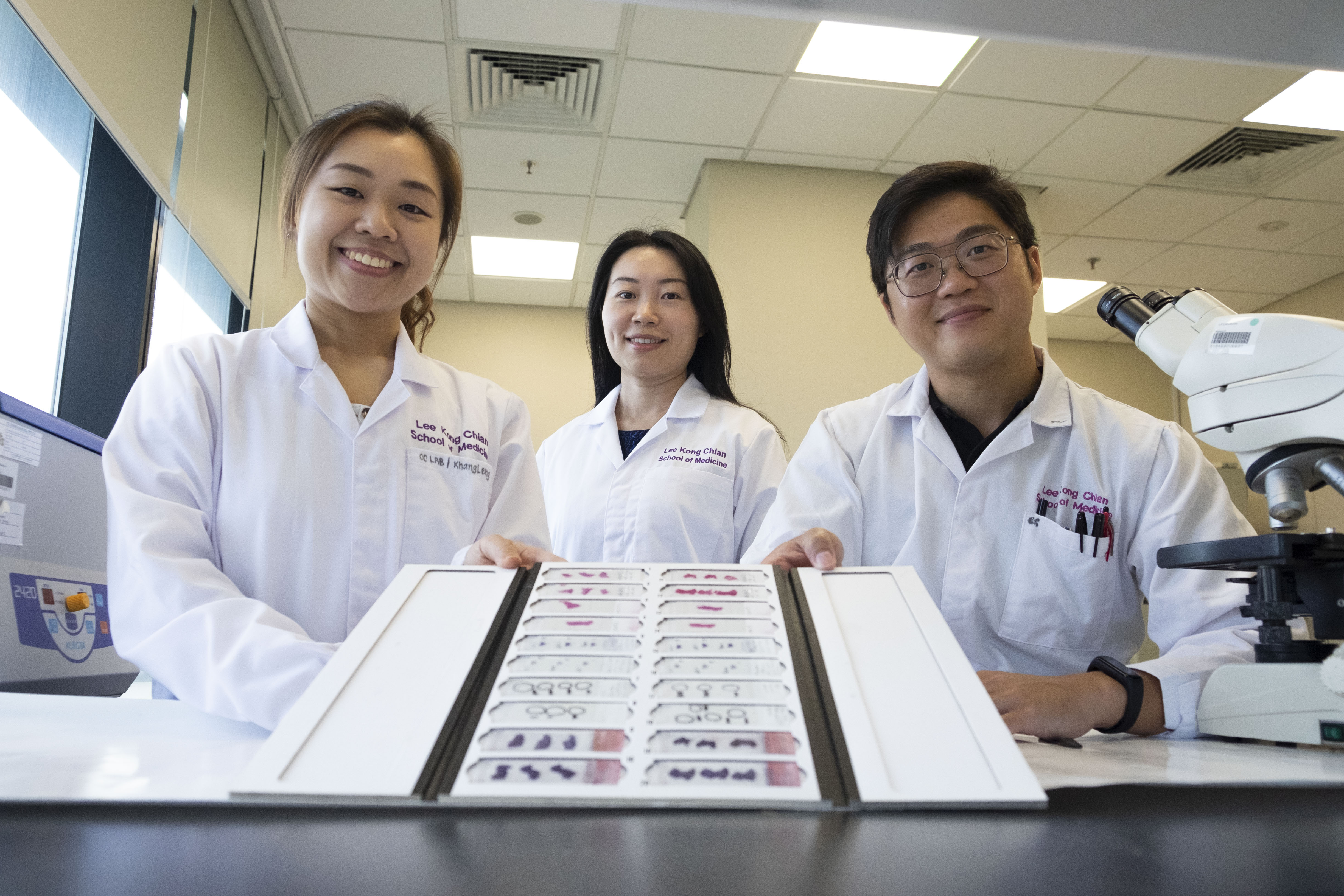How liver disease leads to cardiovascular disease
NTU researchers discover why liver disease patients have a higher risk of developing cardiovascular disease.

Affecting up to 40% of the population in Southeast Asia, non-alcoholic fatty liver disease (NAFLD) is a common chronic condition characterised by the accumulation of fat in the liver. The disease can lead to the scarring of liver tissue and liver cancer.
However, the top cause of death in patients with NAFLD is cardiovascular complications, not liver disease.
To find out why this is the case, a team of researchers from NTU investigated how NAFLD and cardiovascular disease are connected.
Studying blood vessel cells cultured from samples donated by NAFLD patients and healthy controls, the researchers found that compared to healthy individuals, the cells of fatty liver disease patients contained elevated levels of proteins called chemokines.
Chemokines usually attract immune cells such as T cells to the site of infection, indicating where T cells should begin combatting the infectious agent. However, abnormally high levels of chemokines can unintentionally attract T cells into the blood vessel walls of liver disease patients, causing inflammation and damaging the blood vessels.
The researchers also detected three times as many circulating damaged endothelial cells – cells from the inner lining of blood vessels that have been shed into the bloodstream – in fatty liver disease patients, an indicator of blood vessel injury.
As a result of inflammation and blood vessel damage, NAFLD patients have a higher risk of developing blood clots and cardiovascular disease.
“Understanding the link between NAFLD and blood vessel inflammation may lead to improved disease management. Patients who seek medical treatment for liver disease, for instance, could be considered for vascular health check-ups. This way, doctors can monitor the liver health of their patients and at the same time, potentially prevent vascular complications in the future,” says Nanyang Asst Prof Christine Cheung of NTU’s Lee Kong Chian School of Medicine, who led the study.
The research team is now developing biomarkers for early detection of vascular damage in people with inflammatory and degenerative conditions.
Details of the study can be found in “Endothelial-immune crosstalk contributes to vasculopathy in nonalcoholic fatty liver disease”, published in EMBO reports (2022), DOI: 10.15252/embr.202154271.
The article appeared first in NTU's research & innovation magazine Pushing Frontiers (issue #21, December 2022).

-and-dr-dorrain-low-from-ntu-singapore's-lkcmedicine.tmb-listing.jpg?Culture=en&sfvrsn=b389b500_1)
.tmb-listing.jpg?Culture=en&sfvrsn=82921582_1)


.tmb-listing.jpg?Culture=en&sfvrsn=ba129532_1)
